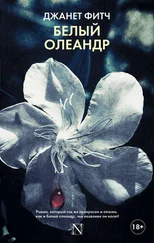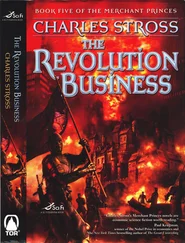We walked in silence down to the Nikolaevsky Bridge, where I could wait for the tram to take me home, although I planned to get off at the first stop and find a cab. The streetlights revealed nothing but snow falling and the rough white surface of the Neva. “So now you know,” she said.
What should I say? I’m sorry that you’re poor? “If only your father had lived.”
“Oh that.” Her breath was white, the snow building up on her black tam. “That’s just a joke. My father’s very much above ground, sad to say. Count Razrushensky—you’ve never heard of him? Union of the Russian People?” An archreactionary group, part of the Black Hundreds. The nemesis of liberals like my parents. “The People’s Will tried to assassinate him in ’06. Failed. Too bad. Bet your mother’s heard of him. She kept giving me those looks.”
The wind whipped around us as we arrived at the tram stop. It was hard to see anything now in the darkness, and the cold was punishing up here on the river. We clung to each other for that small bit of shelter. “But even if he’s reactionary, surely he would help his own daughter.”
“You don’t understand,” she said, speaking through her scarf wrapped around her nose and mouth, our backs to the wind. “It’s a game. Who will win. You really don’t know this?”
I shook my head. “Should I?”
“It’s sort of a well-known scandal.” She kicked one overshoe against the other to knock the snow off and keep some feeling in her feet. “He moved one of his women into the house with us. Told the countess to divorce him if she didn’t like it. Of course she wouldn’t. Too devout. But not too devout to spite him for the rest of his life.” We leaned on the frozen rails, staring up the Neva toward the Winter Palace, the lights pretty through the sifting snow. “So he’s on Millionnaya Street, living with his mistress—or one of them—and we’re on the Sixteenth Line, eating horsemeat.”
Other people’s lives were so confusing. “But why? Aren’t they still married?”
“No, of course you don’t get it.” She took my hand. “Sweet Marina. They hate each other, don’t you see? She’s doing it to punish him. To shame him. Living on the few rubles she gets from her tired old estate and parading her misery around Petrograd, you should see the pleasure she gets from it. It’s like something from Dostoyevsky.” She leaned into me. “And he loves seeing her suffer. Loves it. You can’t shame him. He doesn’t care what people think. I ran away to see him once. The servants wouldn’t even let me through the front door—left me sitting on the step like an orphan selling matches.” I could see her face, wild under the streetlight. “I wish they’d both die.”
Snow sifted through the rails of the bridge, onto the tails of the iron seahorses. I leaned against her, put my arm around her waist, rested my head against her shoulder. My stomach rumbled with the unaccustomed foulness of the meat I’d eaten. “There’s nobody who can help? His family? Hers?”
“Well, that’s the hell of it,” she said, turning around, pressing her back to the railing, scowling at some passing men, wiping her eyes with the back of her knitted glove. “We’re all so very proud, aren’t we? She won’t take a kopek from his family. Hers doesn’t have anything.” She pulled her scarf up higher, so there was only a slit in it for her glittering eyes—was she going to cry? “His brother once offered to take me to his crummy estate outside of Tver, but I’ll be damned if I’m going to be raised by a bunch of reactionaries in the middle of nowhere. That’s why I ended up with my aunt in Germany. But then the war had to come along. So here I am.”
I slung my arm around her shoulders as she started making terrible sucking noises. She didn’t even know how to cry properly.
A few minutes later, I got on the tram by myself. It was less full than it had been, but I was still squashed in with everybody else, hanging from the strap as soldiers took up all the seats. They asked if I had a boyfriend, how old I was, where I lived. They wouldn’t stop talking to me, some standing right next to me, pressing up against me, but I would not get off, I would take it all the way. I felt that I owed Varvara that much, to understand what it was to be her.
Finally, I made it home, back to our comfortable flat, with Basya straightening pillows and the scent of Vaula’s cooking wafting in from the kitchen. Mother came down the hall, perfumed and dressed for the theater, hooking a pearl earring in place. I could have wept.
LETTERS FROM KOLYA APPEARED following New Year’s—addressed to my family: “Dear Makarovs,” with a few cheery anecdotes. Nothing for me. Couldn’t he have written to me separately, or at least enclosed a private note? Was he ashamed of his interest in me? Where were the love notes I’d been so eagerly expecting? I wrote poems about him, about trees come to flower and then withered by ice. A man at the front imagining home, a faithless lover, a walk into bullets. I wrote letters to the regimental address. Why don’t you write? I’m waiting but I’m not good at it, Kolya. I wrote poems about fever, I wrote about mud, I wrote about the sloppy end of winter, the thawing Neva heaving from the pressure of spring, so that it sounded like gunfire. My passion, once aroused, was difficult to dampen.
Wait for me, you said.
Then left me alone in the echoing world.
Late in the spring, I received a letter. It looked as if it had been mauled and then dropped in the mud. Its date: January 1916.
My darling Marina,
I still feel your touch, smell your hair. How do you intoxicate me so? What am I doing on this train? Should I jump? I don’t know when I will see you again. I’ve been reading your book constantly. Some of the fellows want to borrow it, but I won’t let them touch it, only Volodya. I don’t want anyone’s eyes sliding along the contours of your mind. I want you all to myself. Stay home, see no one until I return.
Ever your Ringmaster, K.
And a little line drawing of a fox in a ringmaster’s shiny boots and top hat.
That summer the Russian army broke through the Austro-Hungarian lines on the Southwestern Front, a stunning advance that took pressure off the French and the British at Verdun and knocked the Austrians out of the war. Called the Brusilov Offensive, it proved the Entente’s greatest victory. And yet the flood of the Russian wounded, the terrible numbers of the dead, undercut any mood of rejoicing. For the city was more than the imperial capital, it was the great staging area of the war—whole districts devoted to barracks, to shipbuilding and munitions factories. Soldiers drilled in the middle of boulevards, and crowded every tram. We could watch the country’s lifeblood pouring into the war like water onto sand. We had front-row seats. The stores, as Varvara had told me that first year, were stripped to bare shelves, but the hospitals were full, and new ones were opening all the time. Even the Winter Palace housed the wounded.
Mother’s friends and their daughters donned the short white veil of the volunteer nurses, a brave red cross sewn upon the apron, but Mother couldn’t bear the sight of wounded men, not with Volodya at the front. Every amputee reminded her of the danger. In lieu of nursing, she organized a sewing circle among her friends, making swabs and rolling gauze for use on the battlefield. My school friends knitted scarves and socks. I tried, but I was no Seryozha. My scarves resembled great tangles of hair.
It was Miss Haddon-Finch who suggested that she and I could help the war effort by assisting the British embassy with its program of distributing parcels—clothing and tools, boots and underwear, evaporated milk and sugar—to wounded Russian soldiers returning home to distant villages. “The British want to show their appreciation for their sacrifice,” she said. I quickly agreed. Anything was better than sitting on a summer’s day rolling gauze. A young adjutant at the embassy gave us a list of questions we should ask the men. They seemed awfully dry, more like a census—name, region, district, and so on. Profession? Married or single? Number of children? Literate? But I supposed they gave married men more than the single ones, and something for the children, books if they could read. Our job was just to take the information. The packages would arrive upon discharge.
Читать дальше












